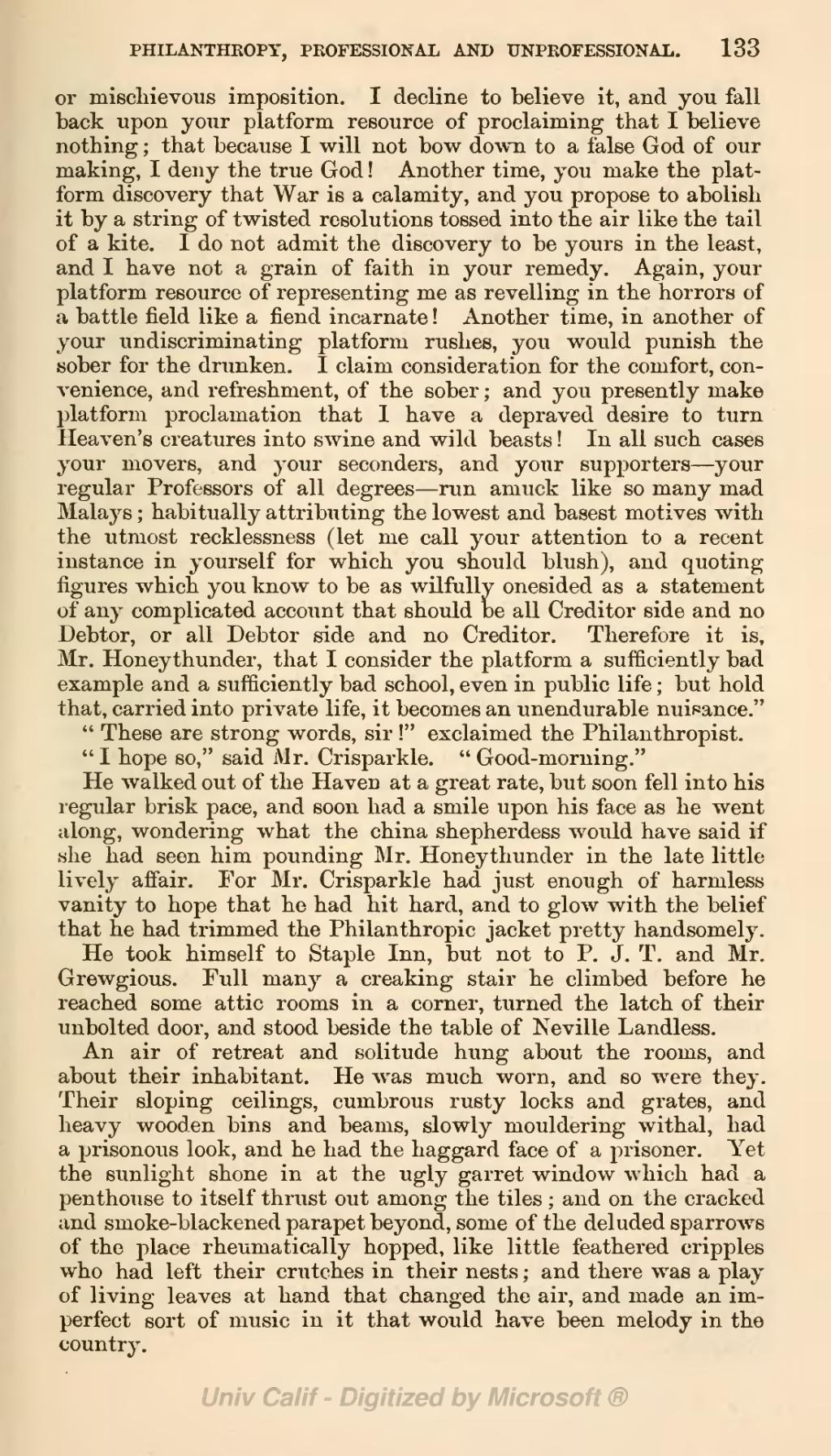or mischievous imposition. I decline to believe it, and you fall back upon your platform resource of proclaiming that I believe nothing; that because I will not bow down to a false God of our making, I deny the true God! Another time, you make the platform discovery that War is a calamity, and you propose to abolish it by a string of twisted resolutions tossed into the air like the tail of a kite. I do not admit the discovery to be yours in the least, and I have not a grain of faith in your remedy. Again, your platform resource of representing me as revelling in the horrors of a battle field like a fiend incarnate! Another time, in another of your undiscriminating platform rushes, you would punish the sober for the drunken. I claim consideration for the comfort, convenience, and refreshment, of the sober; and you presently make platform proclamation that I have a depraved desire to turn Heaven's creatures into swine and wild beasts! In all such cases your movers, and your seconders, and your supporters—your regular Professors of all degrees—run amuck like so many mad Malays; habitually attributing the lowest and basest motives with the utmost recklessness (let me call your attention to a recent instance in yourself for which you should blush), and quoting figures which you know to be as wilfully onesided as a statement of any complicated account that should be all Creditor side and no Debtor, or all Debtor side and no Creditor. Therefore it is, Mr. Honeythunder, that I consider the platform a sufficiently bad example and a sufficiently bad school, even in public life; but hold that, carried into private life, it becomes an unendurable nuisance."
"These are strong words, sir!" exclaimed the Philanthropist.
"I hope so," said Mr. Crisparkle. "Good-morning."
He walked out of the Haven at a great rate, but soon fell into his regular brisk pace, and soon had a smile upon his face as he went along, wondering what the china shepherdess would have said if she had seen him pounding Mr. Honeythunder in the late little lively affair. For Mr. Crisparkle had just enough of harmless vanity to hope that he had hit hard, and to glow with the belief that he had trimmed the Philanthropic jacket pretty handsomely.
He took himself to Staple Inn, but not to P. J. T. and Mr. Grewgious. Full many a creaking stair he climbed before he reached some attic rooms in a corner, turned the latch of their unbolted door, and stood beside the table of Neville Landless.
An air of retreat and solitude hung about the rooms, and about their inhabitant. He was much worn, and so were they. Their sloping ceilings, cumbrous rusty locks and grates, and heavy wooden bins and beams, slowly mouldering withal, had a prisonous look, and he had the haggard face of a prisoner. Yet the sunlight shone in at the ugly garret window which had a penthouse to itself thrust out among the tiles; and on the cracked and smoke-blackened parapet beyond, some of the deluded sparrows of the place rheumatically hopped, like little feathered cripples who had left their crutches in their nests; and there was a play of living leaves at hand that changed the air, and made an imperfect sort of music in it that would have been melody in the country.
